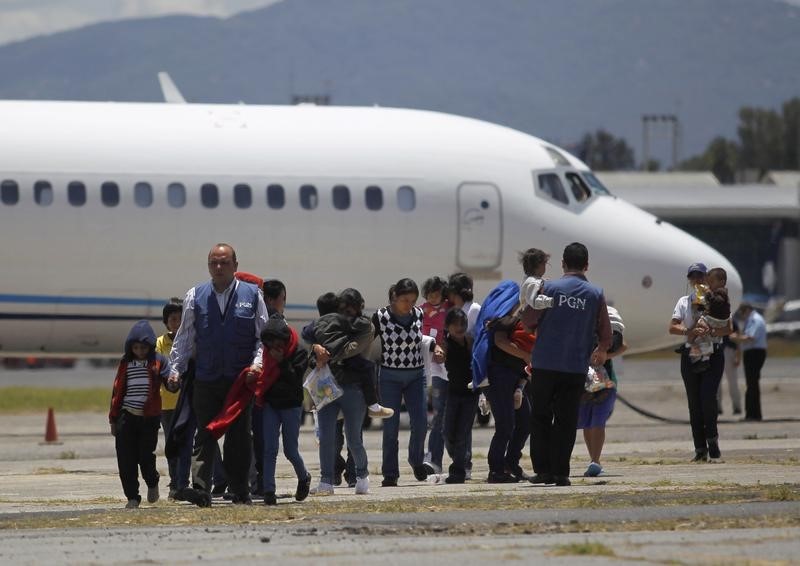By Alexandra Alper
VERACRUZ, Mexico (Reuters) - Three Central American nations that have sent a flood of migrants to the United States are ready to provide $5 billion (£3.2 billion) between them to match a sum Washington says may be needed to help solve the problem, Guatemala's president said on Tuesday.
Struggling to stop the migrant exodus that sparked a crisis in the summer, Guatemala, Honduras and El Salvador presented U.S. officials with a plan in September to boost their economic growth with infrastructure investment.
Addressing the problem on Nov. 18, U.S. Assistant Secretary of State for Latin America Roberta Jacobson told Congress it could take $5 billion over five years to implement a plan for Central America that the United States has backed.
"It would fall to us to at a minimum put up the same amount, if not more," Guatemalan President Otto Perez told Reuters in an interview in the Mexican Gulf port of Veracruz on Tuesday. "That needs to come out of our own budget."
"The billion dollars (a year) would come from the three countries" between them, Perez added.
The money would be ploughed into education, health and labour programs, as well as strengthening justice and security, to help deter migrants from heading to the United States.
How much money will ultimately be approved is far from certain. A 2015 budget bill released in the U.S. Congress late on Tuesday included only $260 million in funding.
The Central America plan is separate from sweeping executive measures that U.S. President Barack Obama unveiled last month to suspend deportations for some 4.7 million immigrants living in the United States without legal documents.
Most of the 11 million undocumented immigrants in the United States come from Mexico and Central America.

The arrival of tens of thousands of illegal migrants from the three countries - including many unaccompanied minors - caused alarm in the United States and a major headache for Obama as he pushed in vain for deep immigration reform.
(With additional reporting by Patricia Zengerle in Washington, Sofia Menchu in Guatemala and Anahi Rama in Veracruz; Editing by Simon Gardner, Dave Graham and Lisa Shumaker)